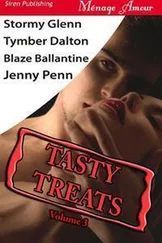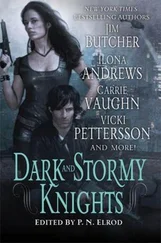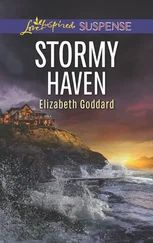The skies in the summer of 1938 were gravid with rain clouds that passed over the Brazos valley dryshod and spilled their rain up against the wall of the Rocky Mountains or the Sangre de Cristos in New Mexico. Hurricane season turned the Gulf of Mexico into a tormented cauldron of wind and rain, and people said that this time the season would bring rain into north-central Texas and there would be grass again. Elizabeth and her daughters lived under an atmosphere that shifted its higher winds in a different direction throughout the remote strata miles above the earth. Some change was taking place. Droughts come and stay for seven years and in those seven years the weak are driven away; mistakes and miscalculations grow into catastrophes, there is no margin for error. Drought is a lack of something, a vacuum, an empty place in danger of implosion.
JEANINE STOOD IN the stands with Innis at the Lubbock South Plains Livestock Show and Rodeo race grounds under the metal roof where people were packed together as if the limits of shade were an invisible fence. The national anthem ended and Innis and a thousand other men raised their hands to replace their hats on their heads. It looked like a broad shore of birds taking flight. Innis and Jeanine were uneasy with each other and so they showed great politeness and Innis said Yes, ma’am to everything she said or happened to mention. Sometimes he said Yes, ma’am before she even finished a sentence and so it made her forget what it was she was saying. Jeanine wore a straw hat with the brim turned up in front, a silk rose pinned to the hat-band, and a cool print dress in the new style. Everything was changing. Fashions were changing. Her dress had sharp padded shoulders and a Peter Pan collar. All the styles were sharper now; there was less of a feeling of stylish lassitude, drooping hems, no more sagging necklines that lolled like tongues.
Jeanine had been raised with sisters and Innis had been brought up around adult men and every day of his life he wished to be like them, to be a grown man instead of a child, and grown men did not sit in the bleachers with women when there was a horse race in the works. A grown man was down in the shedrow, among the horse trailers and the manure and the nervous horses, they made obscure references to women and livestock, in brief sentences. It was a love of language, never to waste a word.
He knew his father’s regard had undergone some great shift, toward this woman who was very mature, with lipstick and high heels and a rose in her hat. He wondered if he had to do whatever she said and just who was the enforcer around here. But there was nothing to be done about it except to say Yes, ma’am to whatever she said. He ran his hands along his hat brim to bring it down in front like Randolph Scott’s hat. His cheeks were bright red in the heat. Far away he heard one of the high school bands that had come to play for the evening rodeo tooting and blowing spit out spit-valves. They began on “Mexicali Rose.”
Jeanine beat the hot, still air with the racing program. Innis sat in his white shirt and tie, his Stetson pulled down over his eyes, with both hands knotted between his knees. Down behind the starting gates Smoky Joe was held by two boys, one on each side of his halter. The jockey was worried. Smoky Joe Hancock was a hard case. Everybody knew he was a hard case. Smoky opened his nostrils wide and struck out at the horses around him. Horses that were springy two-year-olds and hot with energy lay in wait for him. But Smoky was seven years old and he would be running in a pack of other horses for the first time. It was an oval track with grandstands newly painted, with an official clock and a camera at the finish line whose eye was infallible and settled all arguments about nose-to-nose races. The two boys released him. The saddling area was a flaming white blur, and across it, Smoky Joe came at his lunging trot, with his navy and red saddlecloth, his coat shining brilliant as some vital, dark metal. They had done something with his mane; it lay down on his neck, tamed and silky. His tail streamed out in one solid banner.
Behind the stands the noise of the livestock show made a heated tangle of incoherent sounds; the noise and confusion of men grappling with prize sheep and goats, a very small girl speaking in sweet tones to an overheated rabbit in a cage, two boys riding double on a cow pony, the noise of horses and cattle being unloaded from trailers, engines starting up. Jeanine felt in the distance, far beyond the visible horizon, a bass sound of gathering wind and the knotted heart of a storm that could have been weather or maybe it was the life she saw opening in front of her.
Maybe she should begin her sentences with Tell Me , instead of How Is . Such as, tell me about your new foal, the red mare, and the ringtailed cats, about how you shot horses. Tell me what the cook, Jugs, said about something. She had ten dollars in her purse, saved out of the household money. Maybe instead of saying Tell Me she should say Don’t Tell . She had been raised in a household of sisters and an absent father and the thing that had drawn them together into talk, spilled talk unreeling late into the night, was secrets.
She leaned closer to Innis and said, “Don’t tell your dad.”
“Yes, ma’am.” Then he glanced at her. “Don’t tell my dad what?”
“I’m going down to the shedrow and find a bet.” She settled her hat firmly on her head.
“Yes, ma’am.” He thought about it and then unknotted his hands. “Dang! I want to come too.”
“No. You got to stay here and hold the fort. I’m going to leave my purse, and with this crowd, it could get stolen.” She took out the ten dollars from her purse and set the purse on the bleacher seat. “Your dad is going to look up here and if we’re both gone he won’t know what to think.”
“Well dang,” he said. “Ma’am.”
“And don’t tell him unless he asks. You don’t have to lie.”
Innis thought about it for a long time. Then he made a sort of gesture with his right hand, an offhand drift toward her purse with a curled forefinger.
“You go on and make your bet,” he said. “I’ll keep an eye on that purse.” When she hurried off down the bleacher’s wide concrete steps he folded his arms and sat back and surveyed the crowd like a Pinkerton man.
JEANINE WALKED ALONG the shedrow confidently and saw a man she knew, Tom Baker, from Seguin.
“Anybody taking bets?” she said. Baker lifted his hat and smiled. “Right here they are, little lady.”
“Who are you running, Tom?”
“Soldier Boy. Out of Gonzales Joe Bailey.”
Baker and a man from Abilene and two men from the King ranch were amused by her, and smiled, and asked who she was putting her money on and she said Smoky Joe Hancock. Ross Everett was running him to qualify and she had five dollars that said he would break twenty-three seconds and five that he would daylight Soldier Boy out of the gate. Baker and the King ranch man took her bets, and she ran back up the bleacher steps to find Innis.
At the starting gate Smoky Joe was being backed in. All the gates shut in a sharp clang and he snaked his head to one side with his teeth showing in a white row like piano keys. The horse next to him screamed and tossed his head in a feeble, apologetic warning. Smoky’s narrow little jockey said, “Here! Here now!”
And so Smoky straightened out again and cocked his ears toward the track because he was satisfied with the other horse’s weak reaction. He wanted to run badly, not even to win, but to beat up and humiliate the other horses in the gates around him. Ross Everett climbed up on the rear bars behind Smoky’s starting gate and pulled off his belt.
Читать дальше












